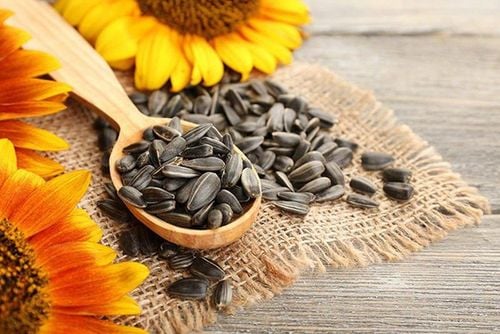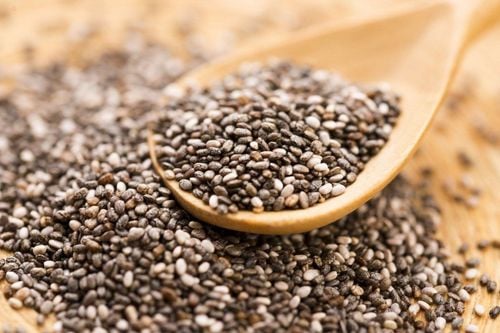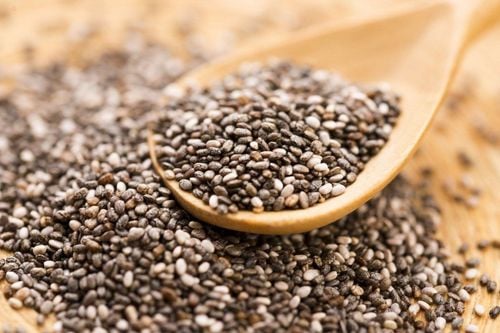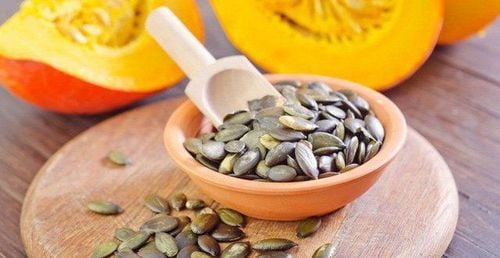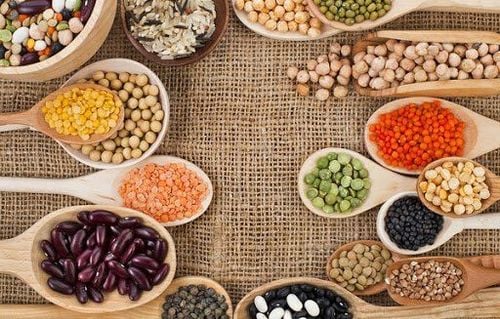This is an automatically translated article.
There are many types of nuts that are beneficial to health and are recommended to be used regularly. So what types of seeds are they, how are they useful, all of which will be answered in the article below.
1. Chia seeds
Chia seeds are a type of seed with a long history of use, but little-known widely until it was officially commercialized and promoted on information channels and media.
Chia seeds are now known as a superfood, and not without reason. At just 1 ounce (~28.35g, or 2 tablespoons) of chia seeds, they contain almost 10 grams of fiber. Chia seeds can be used in many different ways, such as with yogurt or green vegetables to feel the crunch of chia seeds when biting, or to add chia seeds to drinks, like fruit juices. or cashew milk, let the chia seeds soften and make great drinks.
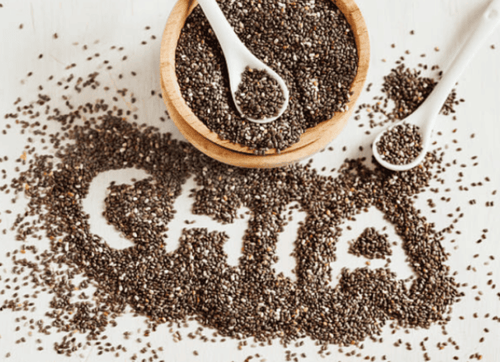
Hạt chia là món quà tuyệt vời cho sức khỏe
2. Wild rice
Wild rice is a special type of rice in North America. Despite the name rice, botanically, wild rice is not the same species as rice commonly found in Vietnam, but it is the seed of a grass. Nutritionally wild rice is higher in protein than other whole grains, and has more antioxidants than white rice. Besides, wild rice is also rich in folate, magnesium, phosphorus, zinc, vitamin B6 and niacin (vitamin B3). Wild rice has many different ways of processing, from cooking it as a normal rice dish, to mixing it with other rice or grains, or making it into a salad, soup, or even a dessert. mouth for meals.
3. Pumpkin seeds
Toasted pumpkin seeds are a fun snack that's also very healthy. Pumpkin seeds are high in magnesium (an important mineral that benefits heart health and helps build muscle strength). Besides baking, pumpkin seeds can be made into soups, salads, cereals or mixed dishes.4. Pomegranate seeds
Pomegranate seeds (taken from the inside of a pomegranate) are eye-catching (looks like jewels) and have a sweet taste. Pomegranate seeds are rich in vitamin C and antioxidants. A full cup of pomegranate seeds provides only 130 calories, making pomegranate seeds perfect for making a healthy snack. If you don't want to eat pomegranate seeds, add pomegranate seeds to salads or whole grains to add flavor and color to dishes.
5. Quinoa
If you are looking for a healthy source of protein, then quinoa is the right candidate. Quinoa is very simple to prepare, just cooks like rice, and can be eaten with or prepared with other dishes, such as pasta or other grains.
Besides the above processing, quinoa seeds can be used to make bread (and this bread will have gluten-free ingredients), or can cook porridge (rich in protein, fiber and iron) with quinoa for breakfast.
6. Flax seed
Flaxseed is a healthy food that has been used by humans since ancient times, around 9000 BC. If you are a person who does not like to eat fish, add flaxseed to your meal to provide omega-3 fatty acids, a type of fatty acid that is good for heart health.
Flaxseed is the best plant-based source of omega-3, besides it's also high in fiber and can help lower blood pressure. Using flaxseed is very simple, can be added to salads, added to oats or used as a baking ingredient.
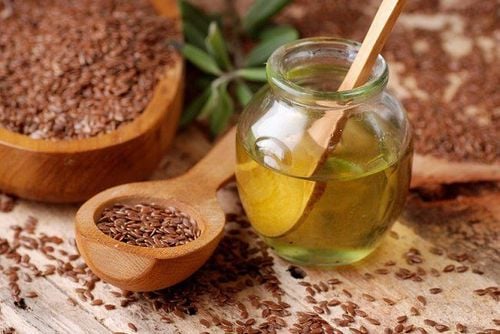
Hạt lanh có nguồn omega - 3 rất có lợi cho sức khỏe
7. Hemp seed
The mild taste of strawberry hemp seeds is very suitable for making desserts. Strawberry hemp seeds contain a lot of protein, just 2 tablespoons of hemp seeds provide nearly 7 g of protein for the body, more than flax or chia seeds.
Strawberry hemp seeds are also a source of healthy omega-3 fatty acids. Hemp seeds can be used alone, or eaten in salads or with other whole grains. Strawberry seeds can also be used to make milk.
8. Sunflower seeds
Sunflower seeds are very familiar seeds, both delicious and good for health. A 1-ounce serving (~28.35 g) provides about half of your daily vitamin E needs. Not only that, sunflower seeds are rich in healthy fats. Sunflower seeds have many different uses, from eating directly as a healthy snack, adding to smoothies or using as an ingredient in various dishes.
9. Sesame seeds
The white sesame seeds commonly found in hamburgers are not just for decoration. Sesame seeds are one of the most versatile ingredients. Sesame seed oil, which is often used in salads, is extremely rich in fatty acids that help reduce bad cholesterol levels in the body.
When crushed to make sesame butter (tahini), people who are allergic to peanuts can completely use it as a substitute for traditional peanut butter, and sesame butter is also the main ingredient in a dish. sauce called hummus. Whole sesame seeds are rich in fiber and protein, if added to dishes will bring not only nutritional benefits but also flavor to the dish.
Reference article source: webmd.com
MORE:
Flaxseed oil: Uses, dosage, side effects Uses, dosage and side effects of Vitamin C Niacin (vitamin B3): Uses, doses use, side effects




